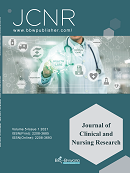Abstract
Atropine (atropinol) is a typical anticholinergic drug that competes for M receptors. Large doses of atropine can expand blood vessels, relieve small vasospasm, improve microcirculation as well as cardiovascular function, and inhibit thromboxane formation. It is an ideal drug for the treatment of septic shock that are worthy of clinical application. In recent years, studies have found that the main mechanisms of atropine's anti-infective shock include inhibiting calcium ion overload, improving microcirculation disorders, inhibiting thromboxane formation, reducing the release of inflammatory mediators, and inhibiting the release of glutamate. The research progress of the pharmacological effects and mechanisms of atropine in the treatment of septic shock is summarized, and it provides a basis for the in-depth study of atropine.
